The Bryson Professor carries out research, teaching, and public service in the socially relevant environmental and climate sciences in the spirit of the integrative approach pioneered by Reid A. Bryson. The professorship requires a unique combination of disciplinary research skills, interdisciplinary capabilities, vision and leadership qualities. The CPEP Board selects the Bryson Professor who holds the position between three to five years. In some cases limited annual extensions are made possible in appropriate circumstances.
Paul Block
2023 – present
PhD, University of Colorado-Boulder
 Professor Block and his research group creatively address critical water resources management challenges in local to international trans-boundary capacities through stakeholder and decision-maker collaborations. They work at the intersection of engineering and socio-economics to enhance management, adaptation, and sustainability of water resources by leveraging across the sciences. Their research themes are centered on a systems-based approach, bridging models and methods across climate science, hydrology, management, the environment, economics, and policy. Specific research interests include:
Professor Block and his research group creatively address critical water resources management challenges in local to international trans-boundary capacities through stakeholder and decision-maker collaborations. They work at the intersection of engineering and socio-economics to enhance management, adaptation, and sustainability of water resources by leveraging across the sciences. Their research themes are centered on a systems-based approach, bridging models and methods across climate science, hydrology, management, the environment, economics, and policy. Specific research interests include:
- Methods, models, and tools for managing climate variability and change
- Hydrologic forecasting and integration into decision models
- Addressing water quality and quantity extremes
- Hydro-economics and policy mechanisms
- Risk, reliability, and uncertainty
- Sustainable approaches
Ankur Desai
2019 – 2023
PhD, Pennsylvania State University
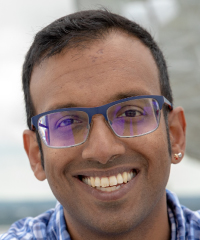
Professor Desai and his ecometeorology lab develop new ways to understand how the surface of the Earth modifies climate and weather, and how changes in climate and weather patterns, in turn, affect ecosystems.
His work relies on long term field studies of ecosystem dynamics, computer models of land-atmosphere feedbacks, and theoretical advancement of lower atmosphere processes. He runs a set of long-term carbon and water cycle eddy covariance field experiment sites in Northern Wisconsin and Michigan as part of the Ameriflux program.
Desai also serves as director of graduate studies for Atmospheric and Oceanic Sciences, editor of Journal of Geophysical Research-Biogeosciences, and member of the National Ecological Observatory Network science advisory committee.
He is co-PI of the NSF North Temperate Lakes Long Term Ecological Research (LTER) site. He received his Bachelor’s degree in computer science and environmental studies from Oberlin College, a Master’s in Geography from University of Minnesota, and a PhD in Meteorology from The Pennsylvania State University.
Galen McKinley
2016 – 2017
PhD, Massachusetts Institute of Technology
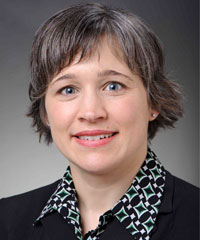
Professor McKinley studies the mechanisms of the carbon cycle in the global oceans and Great Lakes, with her research lying at the intersection of physical and chemical oceanography. Her primary tools are numerical models and analysis of large datasets. More specifically, her research addresses the physical drivers of ecosystem and carbon cycle variability in the North Atlantic, global oceans and Great Lakes.
Professor McKinley teaches in the Department of Atmospheric and Oceanic Sciences. Professor McKinley is also active in service to the national and international scientific and policy-making communities.
Visit Galen McKinley’s website
Daniel J. Vimont
2012 – 2016
PhD, University of Washington

Dr. Vimont’s research focuses on mechanisms of climate variability and climate change, interactions between weather and climate, and impacts of climate variability and climate change. Some of his recent projects include:
- The Wisconsin Initiative on Climate Change Impacts: Assessing and adapting to climate change in Wisconsin
- Tropical Pacific Ocean/Atmosphere Interactions: Dynamics of El Nino/ the Southern Oscillation (ENSO), and how ENSO may change under global warming
- Atlantic Climate Variability: Connections between high-latitude and tropical climate variability in the Atlantic, and potential impacts on tropical cyclone (hurricane) activity
- Aerosols and Climate Change: Understand the role of aerosols (e.g. dust) in historical records of climate change
John W. (Jack) Williams
2008 – 2012
PhD, Brown University
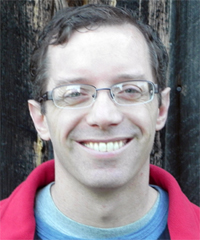
Jack Williams studies the responses of plant species and communities to climate change. Much of his work has focused on mapping and modeling the shifting distributions of species during the last deglaciation (ca. 21,000 years ago to present), a time characterized by abrupt climate changes, rising CO2 concentrations, and progressive sea-level rise – in short, a time period with informative similarities to our own. Dr. Williams teaches in Geography and serves as director at the Nelson Center for Climatic Research (CCR).
Sara Hotchkiss
2003 – 2008
PhD, University of Minnesota
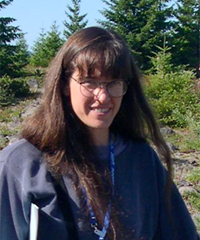
Dr. Hotchkiss’ research uses paleoecological methods to study how rare events and slow changes shape ecological history. Her work provides perspective on observations of modern ecosystems, predictions of ecosystem trajectories, and management planning. Her current projects include studies of human-landscape interactions, climate history, vegetation history, disturbance, species invasion, and ecosystem development.
Geographically, her research covers the upper Midwest, Hawaii, and the Pacific. Dr. Hotchkiss currently lectures in Botany and directs graduate seminars at the University of Wisconsin-Madison.
Jonathon Foley
1993 – 2000
PhD, University of Wisconsin-Madison
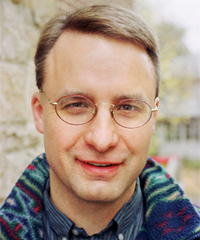
Jonathan A. Foley was named the first Distinguished Professor of Climate, People, and Environment. Foley’s research interests include climate dynamics, global biogeochemistry, vegetation ecology, and human ecology. Among other things, he also worked on developing computer simulations of the global climate and biosphere to help predict the effects of human activity on the global environment.
After his CPEP Professorship, Dr. Foley became the founder and Director of the Center for Sustainability and the Global Environment (SAGE) and, later, the director of the Institute on the Environment at the University of Minnesota.